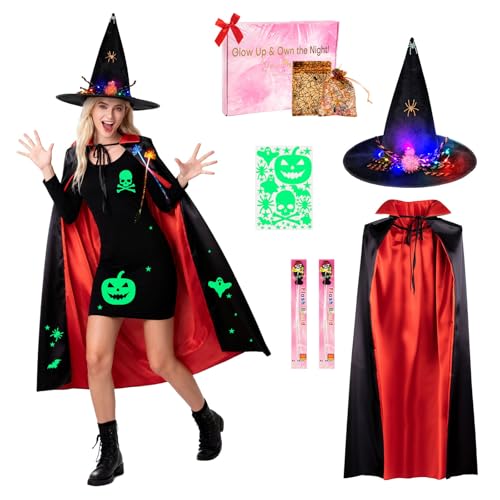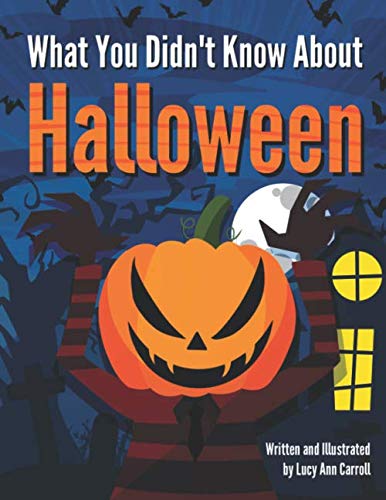Are you curious about whether Halloween entitles you to time and a half pay? Well, you’ve come to the right place! In this article, we will explore the question of whether or not Halloween is considered a holiday that warrants extra compensation. So, if you’re wondering if you’ll be earning a little extra treat this spooky season, keep reading to find out the answer!
Halloween is a beloved holiday that brings out the kid in all of us. From costumes to candy, it’s a time of fun and festivities. But when it comes to your paycheck, does Halloween have any special significance? In this article, we will delve into the topic of whether or not employers are required to pay their employees time and a half for working on Halloween. So, if you’re wondering if your Halloween shift will come with a little financial treat, stay tuned!
Does Halloween Qualify for Overtime Pay?
As a Halloween enthusiast like you, I understand the excitement and energy that comes with this spooky season. From decorating your house with cobwebs and jack-o-lanterns to putting together the perfect costume, Halloween is a time for fun and creativity. But when it comes to working on Halloween, the question arises: does it qualify for overtime pay?
Having worked in Halloween shops myself, I can share some insights about how this holiday is typically handled in terms of compensation. While many employers do recognize the festive nature of Halloween, it’s important to note that it doesn’t automatically entitle you to time and a half.
The Fair Labor Standards Act (FLSA) governs the regulations for employee compensation in the United States, including overtime pay. According to the FLSA, holidays are not considered special circumstances that require extra compensation. Instead, it’s up to each employer’s discretion whether or not to provide additional pay for working on Halloween.
Some companies may choose to offer holiday pay or incentives as a way to reward employees who work on Halloween. This means you might receive extra compensation or perks for your dedication. However, it’s essential to check with your employer or review your employment contract to see if such benefits apply to you.
If you’re on the hunt for the best Halloween products and want to support businesses that prioritize their employees, it’s worth considering shopping at establishments that value fair compensation practices. Many Halloween shops are small businesses, and your support can make a significant difference in the lives of their employees.
Whether or not Halloween qualifies for overtime pay ultimately depends on the policies of each individual employer. While it’s always a great idea to clarify your compensation expectations with your employer, the holiday itself does not require automatic time and a half. So, if you’re working on Halloween this year, embrace the spooky spirit and enjoy the festivities, knowing that it’s your love for the holiday that truly counts.
Understanding Time and a Half
As a Halloween enthusiast like Ricky, you understand the excitement of going all out for the spookiest holiday of the year. And if you’ve worked in Halloween shops like Ricky, you know that Halloween preparation starts months in advance, with long hours dedicated to creating the perfect spooky atmosphere and helping customers find the best costumes and decorations.
When it comes to working on Halloween, you might wonder if you’re entitled to time and a half pay. Understanding time and a half can help you navigate your expectations and clarify any compensation concerns with your employer.
Time and a half refers to a special rate of pay that is equal to one and a half times your regular hourly wage. It is typically offered when employees work more than a certain number of hours in a specified time period, such as over 40 hours in a week or on designated holidays. While federal law mandates overtime pay for nonexempt employees who work more than 40 hours in a week, Halloween itself is not recognized as a holiday that requires time and a half pay.
However, it’s essential to remember that each employer has the discretion to offer additional compensation or incentives for working on Halloween. Some employers may choose to recognize Halloween as a special circumstance and provide extra pay or rewards for their employees. Be sure to check with your employer or consult your employee handbook for any policies regarding holiday pay.
When shopping for Halloween products, consider supporting establishments that prioritize fair compensation practices. Look for retailers that provide good working conditions and fair wages to their employees. By doing so, you can ensure that your Halloween celebrations are not at the expense of someone else’s fair treatment.
Remember to have open communication with your employer about your compensation expectations. They will be able to provide you with any additional information regarding pay rates and policies for working on Halloween.
The Definition of a Holiday
You might have wondered if Halloween qualifies for time and a half pay. As a Halloween enthusiast like Ricky, who goes all out every Halloween, you might find yourself working at local Halloween shops to fully immerse yourself in the spooky season.
When it comes to determining whether Halloween is considered a holiday, it’s important to understand the definition of a holiday under the Fair Labor Standards Act. According to the act, a holiday is not a legally recognized term, and Halloween does not have the same designation as traditional holidays like Christmas or Thanksgiving. However, some employers may still offer additional compensation or incentives for working on Halloween.
Employers have the flexibility to decide how they handle holidays and whether to provide extra pay. While it is not legally required to pay employees time and a half for working on Halloween, some employers may choose to do so as a way to acknowledge the significance of the holiday or to incentivize employees to work during what can be a busy and festive time. It’s always a good idea to clarify compensation expectations with your employer beforehand, particularly if you are working in an industry that experiences increased demand during the Halloween season.
If you’re looking for the best Halloween products, supporting establishments that prioritize fair compensation practices may be a factor to consider. Look for businesses that value their employees by offering competitive pay and benefits. By doing so, you can ensure that you’re not only getting top-quality Halloween products, but also contributing to a positive and fair work environment.
Exemptions and Exceptions
You might be wondering if there are any exemptions or exceptions when it comes to Halloween and overtime pay. While Halloween itself is not legally recognized as a holiday under the Fair Labor Standards Act, there are a few things to keep in mind.
1. Employer Policies: Some employers may have their own policies regarding overtime pay on Halloween. It’s always a good idea to check with your employer to see if they offer any additional compensation or incentives for working on this spooky holiday.
2. Industry Norms: In certain industries, such as Halloween shops, haunted attractions, or party supply stores, it’s not uncommon for employers to provide extra compensation for working during the Halloween season. These industries thrive during this time, and many employers understand the dedication and effort that goes into creating a memorable Halloween experience.
3. Negotiation: If you’re in a position where you have the flexibility to negotiate your compensation, it might be worth discussing the possibility of receiving overtime pay for Halloween shifts. Employers may be open to the idea if they recognize the value you bring to the table, especially if you have a history of working in the Halloween industry.
4. Supporting Fair Compensation Practices: When considering your options for Halloween-related employment, it’s always a good idea to support establishments that prioritize fair compensation practices. Look for employers who value their employees and are willing to go the extra mile to acknowledge their hard work, especially during the Halloween season.
As a Halloween enthusiast, like Ricky here, you understand the importance of finding the best Halloween products and experiences. While you may not always be eligible for overtime pay on Halloween, it’s worth exploring your options and having open conversations with your employer. Remember, there’s more to Halloween than just the candy and costumes – it’s also about recognizing the hard work and dedication that goes into creating the perfect Halloween atmosphere.
Holiday Pay Laws by State
As a Halloween enthusiast like Ricky, you know that Halloween isn’t just a holiday – it’s a way of life. And when it comes to getting time and a half on Halloween, it’s important to understand the holiday pay laws unique to your state. Although Halloween is not a federally recognized holiday under the Fair Labor Standards Act (FLSA), some states have their own laws and regulations regarding holiday pay. Let’s take a look at a few of them:
1. California – In the Golden State, there are no specific laws requiring employers to pay extra for working on Halloween. However, it’s worth mentioning that California has some of the most employee-friendly labor laws in the country, so it may be worth discussing with your employer.
2. New York – Similarly to California, New York does not have any laws that mandate time and a half for working on Halloween. However, if your employer has a policy of paying holiday pay or if it is common practice in your industry, you may be entitled to receive overtime.
3. Massachusetts – Good news for Massachusetts residents! The state has a unique law that requires certain retail establishments to pay time and a half to employees who work on Sundays and holidays, including Halloween. Make sure to check if your employer falls under this category.
4. Oregon – While Oregon does not have specific laws regarding holiday pay on Halloween, it does have provisions in place for employees who work in industries that typically experience spikes in demand during the Halloween season. These employees may be eligible for additional pay or alternate time off.
Remember, these are just a few examples of how different states approach holiday pay on Halloween. It’s important to familiarize yourself with your state’s specific labor laws and have open conversations with your employer about your compensation.
Conclusion
Knowing the holiday pay laws in your state is crucial when it comes to working on Halloween. While Halloween itself is not recognized as a federal holiday under the Fair Labor Standards Act, some states have their own regulations in place. In California and New York, there are no specific laws requiring extra pay for working on Halloween. However, it’s always a good idea to have a conversation with your employer to discuss any potential compensation.
Massachusetts has a unique law that mandates certain retail establishments to pay time and a half for working on Sundays and holidays, including Halloween. On the other hand, Oregon has provisions in place for industries that experience increased demand during the Halloween season.
To ensure you are aware of your rights and entitlements, it’s important to familiarize yourself with the labor laws in your state. Having open and honest conversations with your employer about compensation can also help address any concerns or questions you may have. Remember, understanding your rights and advocating for fair compensation is essential when it comes to working on holidays like Halloween.











